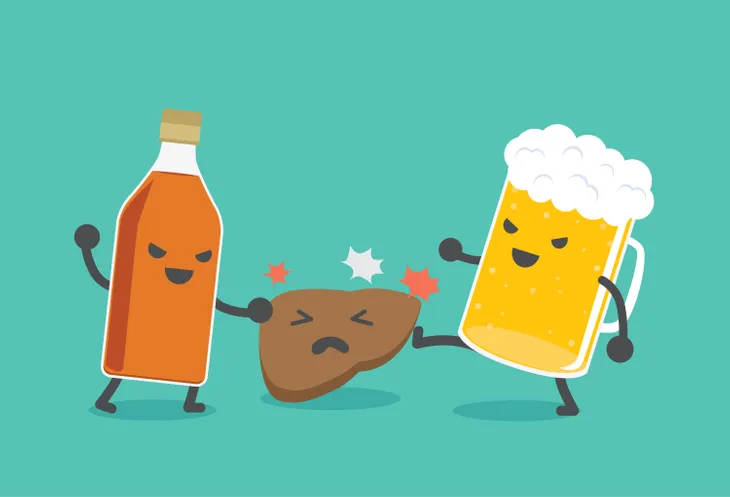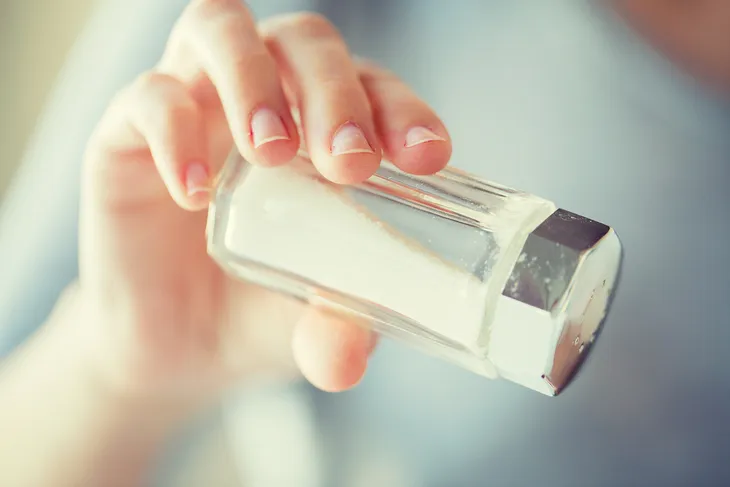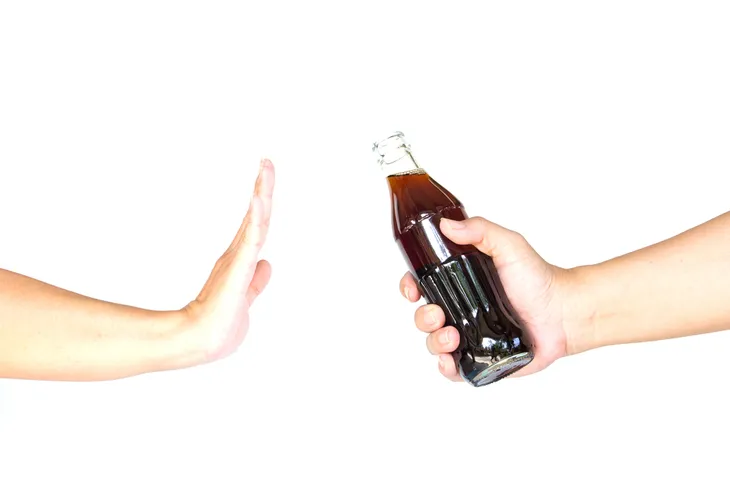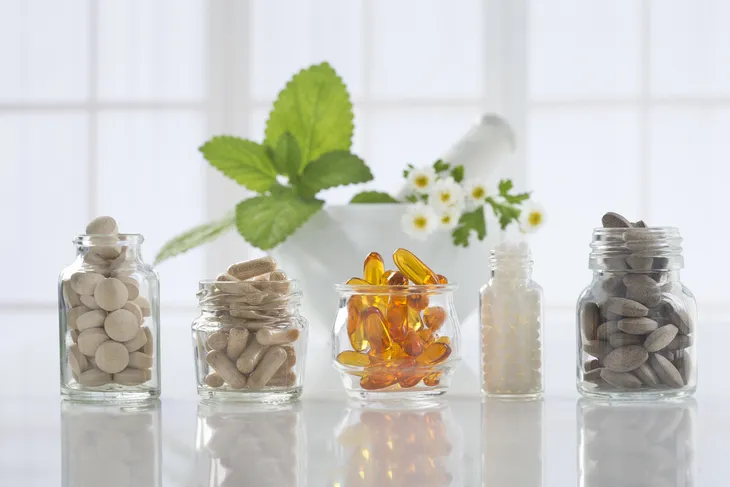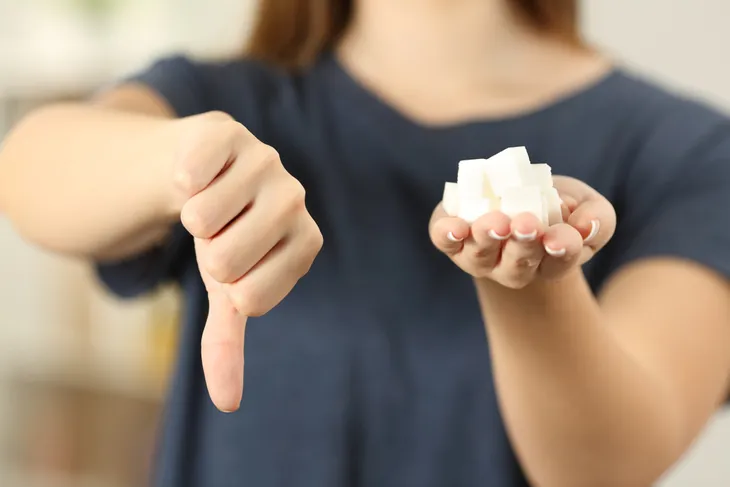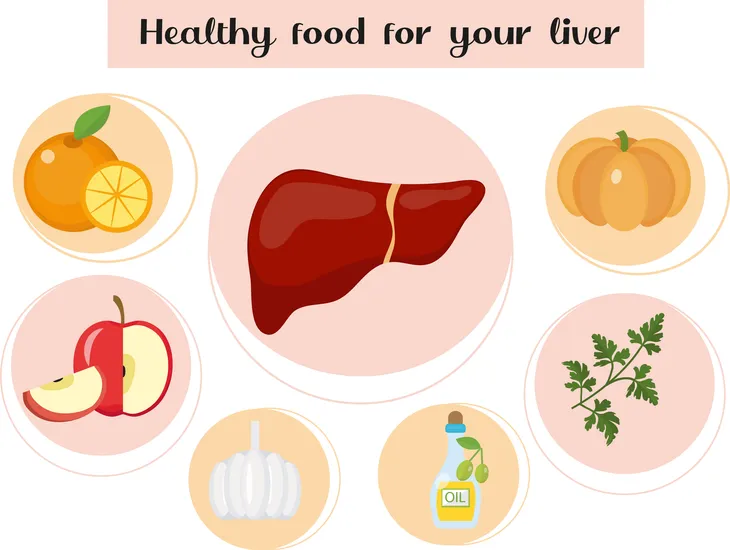It should come as no surprise how important your liver is. This vital organ is responsible for things like filtering blood coming from the digestive tract, detoxifying chemicals, metabolic function, and lots more. That’s why it’s good to understand how certain lifestyle choices can put your liver’s health at risk which in return, puts their overall health at risk.
Follow along as we dive into the worst habits a person can have when it comes to their liver health…
Consuming Alcohol Regularly
Alcohol is one of the leading causes of liver damage. Since the liver is responsible for processing everything a person digests, having too much alcohol can lead to an abnormal liver function and chemical imbalance. The Canadian Liver Foundation says this can result in health issues such as fatty liver, alcoholic hepatitis, cirrhosis, or even alcohol-induced liver disease.
It’s important to monitor how much alcohol you consume. Every person’s body is different in terms of size, weight, age, and other health factors. The CDC recommends adults drink in moderation by limiting their intake to two drinks or less in a day for men or one drink or less in a day for women.
Drinking Too Much Coffee
It’s never a good idea to drink too much coffee, particularly for those taking the pain relief medication acetaminophen. In a study performed with rats, researchers found high amounts of caffeine worsened the scarring of liver tissue. The takeaway from this work tells us that consuming a lot of caffeine when combined with acetaminophen is detrimental to liver health.
That’s not to say coffee is all bad for the liver. According to LiveStrong, researchers have found that moderate amounts of caffeine can suppress liver scarring in patients with chronic liver disease and even reduce your risk of developing chronic liver disease — just make sure not to overindulge.
Pouring Too Much Salt
Salt can add a lot of taste to your meals, but it can also be detrimental to your liver’s health. High-salt diets are linked to a number of liver malfunctions. Medical News Today says this includes “misshapen cells, higher rates of cell death and lower rates of cell division – all of which can lead to liver fibrosis.”
Liver fibrosis is when an abnormal amount of scar tissue forms on the liver. You can lower your chances of liver damage and fibrosis by limiting your salt intake. The CDC recommends that Americans consume only one teaspoon or 2,300 mg of salt per day.
Vitamin A
Vitamin A is an antioxidant that impacts a person’s vision, growth, immunity, cell division, and reproduction. But did you know that getting too much vitamin A could be a bad thing? According to Mayo Clinic, taking more than 10,000 mcg of oral vitamin A supplements every day over a long period of time could cause liver damage and your risk of developing liver disease.
Soft Drinks
There are a lot of unhealthy outcomes that come from drinking soft drinks, and one of them is a greater chance of being diagnosed with non-alcoholic fatty liver disease (NAFLD). WebMD explains that while there is not a direct link between soft drinks and NAFLD, there is enough reason to cut back on these sugary beverages in your day-to-day life.
Herbal Supplements
Herbal and dietary supplements have become increasingly popular in the U.S. This includes products such as vitamins, minerals, amino acids, and proteins that are used to make up for nutrition values not fulfilled in a person’s everyday diet. Unfortunately, researchers are learning that some herbal supplements can cause liver injury.
MedMD reports some supplements that could cause toxic liver disease include the following ingredients:
- Aloe vera
- Black cohosh
- cascara
- Chaparral
- comfrey
- Ephedra
- Kava
There are different types of supplements used for purposes such as weight loss, bodybuilding, depression, joint support and many others. Experts are working to better understand the relationship between certain supplements and liver injury so that consumers are aware of the risks associated with these non-prescription supplements.
Added Sugar
If you have a sweet tooth, then it’s important to be more mindful of the foods you eat with added sugar. Since the liver uses fructose to make fat, eating an excessive amount of refined sugar and high-fructose corn syrup can cause a fatty buildup. This can potentially lead to liver disease, according to WebMD.
Overeating foods with high sugar and trans fats (found in packaged foods and baked goods) also make you more likely to gain weight, which is another health issue that can negatively impact the liver.
Habits Good For Your Liver
While there are bad habits that can lead to an unhealthy liver, there are also positive things you can do to ensure it remains in good shape. For starters, drink a lot of water.
You can also swap out unhealthy saturated and trans fats for good fat (like omega-3 fatty acids), and opt for whole foods instead of processed foods in your daily meals. By doing this along with getting good sleep and regular exercise, you can lower your chances of developing liver damage. (Read up on the Healthy Foods Your Liver Will Thank You For).

